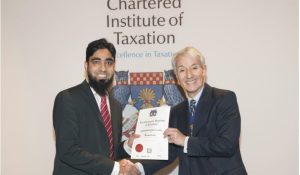Domicile
Domicile refers to the nationality of the individual, i-e, the individual’s permanent home. The rule of thumb is that an individual gets a domicile of the country where they are born. But if, for any reason, the individual decides to move out of their home country and settle in a new one, for example, the UK, they will need to apply for a new domicile.
However, when it comes to taxation, rules are a bit complicated. If any individual has been staying in the UK for a long duration, HMRC may deem them domiciled for tax purposes. Think this is complicated? Let us explain further.
Following is the significance of the domicile for UK tax purposes:
- If you are a non-UK domiciled individual residing in the UK but are not deemed domiciled as yet, then you can claim the remittance basis of taxation vis-a-vis non-UK capital gains and income; and
- Any individual not deemed domiciled by HMRC will only pay inheritance tax on assets located inthe UK or offshore assets that generate value from residential property based in the UK.
For taxation purposes, an individual can argue that they are non-UK domiciled if they are based in the UK for a very short and temporary basis; also, he can notify about his intended time of departure from the country.
Poignantly, HMRC can challenge the domicile status of the individual. It is pertinent here to mention that the risk of challenge from HMRC is higher for those individuals who migrated to the UK, claiming that their country was going through political turmoil or an economic downturn. And if HMRC finds out that the claim made by the individual is false and they intend to make the UK their permanent home, they will be considered a domiciled individual.
However, multiple factors influence the domicile status, and several are unique to individuals. Therefore, HMRC will consider all aspects while making any decision.
By seeking help from top-notch experts, you can considerably reduce the risks of challenges from the HMRC. Likewise, you can reduce your tax liability to the minimum by seeking help from top-notch tax experts. So, let’s get in touch!
Remittance Basis Tax Implications for Hong Kongers
As explained in the above paragraphs, HMRC will subject all UK residents to tax on any income or capital gains from assets outside the UK. HMRC dubs it as “arising basis of taxation.”
In simple terms, it means that a UK resident who is non-UK domiciled will pay tax on their source of income and gains originating from and located in the UK; any income or gains arising in the year of residence from sources and assets located outside of the UK will not be taxed until they are remitted. If you are a non-domiciled UK resident, you can save your non-UK income and gains from the tax body by not remitting them back to the UK. However, this is quite different from Hong Kong, where such immunity is conditional.
As far as the term remittance is concerned, it entails the following:
- Transferring non-UK income and gains from an overseas investment portfolio to a UK bank account;
- Paying a foreign credit card that has been used in the UK with non-UK income or gains;
- Acquiringa UK residential property using non-UK income or gains or servicing an overseas mortgage for a UK residential property using non-UK income or gains.
Against the backdrop of remittance basis tax implications for Hong Kongers, if you are a Hong Konger and a UK resident, you should seek advice to maximise the tax reliefs and minimise the tax liability when remitting non-UK income and gains from abroad.
What makes the United Kingdom an attractive destination when compared to other countries or jurisdictions is that a non-domiciled UK resident can claim a remittance basis for free for the first 7 out of 9 years of residence. After seven years, you need to pay a charge of £30,000 to claim remittance; likewise, the charge hikes to £60,000 after 12 years of residence. After completing 15 years of residence in the UK, HMRC declares and treats a person as deemed domiciled for taxation purposes. In such a case, the individual can no longer claim the remittance basis. These are all the remittance basis tax implications for Hong Kongers that should be considered as part of pre-arrival tax planning.
Pre-arrival planning and advice
The UK is an attractive destination for Hong Kongers regarding inheritance tax liability. For the first 15 years of residence, non-domiciled UK residents can claim remittance to minimise the IHT liability.
But to minimise the IHT tax liability, proper planning and expert guidance is required due to certain complexities in the tax laws.
Therefore, you must do meticulous ‘pre-arrival planning’ so that a source of tax-efficient funding can be created in advance. The individual then uses this tax-efficient funding source during their stay in the UK. Our experts have outlined some steps that Hong Kongers should consider while making pre-arrival funding sources. These are:
To create a tax-efficient funding pool that will be tax-free. Such a pool of funds is considered clean capital in the United Kingdom. This pool of funds can only include those funds, gifts, and inheritances that have arisen before an individual [in this case, a Hong Konger] has become a UK resident. Top-notch tax experts like IBISS&CO will make arrangements to keep your clean capital funds away from non-UK income after a Hong Konger becomes a UK resident. These arrangements will keep your capital funds available for use tax-free.
- To rebase assets that are standing Under the UK taxation regime, individual assets are not rebased automatically. It means if a Hong Konger moves to the UK, gets UK resident status, and sells non-UK assets,HMRC will subject them to tax on the full amount of gain on the full duration of the ownership [instead of charging tax on gains arising after getting UK resident status]. Again, tax experts can help you with long-term planning to protect the UK inheritance tax regime by setting up trusts.
Other Considerations
There are some other considerations too that should be kept in mind while doing pre-arrival planning. These considerations include:
Making tax-efficient investments. For non-domiciled UK residents, certain investments are either tax-free or tax-efficient.
Making tax-efficient arrangements for those existing trusts of whom non-UK residents are sole beneficiaries or settlors. The existing UK tax regime vis-a-vis non-UK resident trust is based on extremely complex rules. Therefore, careful planning and considerations are needed before the individual status changes from non-UK resident to UK resident so tax liabilities can be minimised. Considering all remittances basis tax implications for Hong Kongers, you can make tax-efficient arrangements before and after your arrival in the UK.
Family Home & UK Tax Rules for Hong Kongers
The most important investment when moving to the UK is purchasing a family home. Therefore, it becomes indispensable to consider all the tax implications and methods of making a house purchase tax-efficiently.
Generally, individuals pay Stamp Duty Land Tax (SDLT) when they buy any land or property in England and Northern Ireland. If you are a non-UK resident, then rates of SDLT go significantly higher [specifically if the non-UK resident owns properties outside of the UK].
But there are various reliefs available. By seeking the advice of tax experts, non-UK residents can minimise their tax liability significantly.
From a tax point of view, the UK remains an attractive destination only when proper arrangements are made under the guidance of tax experts. So, if you are a Hong Konger and planning to move to the UK, reach out to us NOW and let us provide you with the right and tax-efficient structure.









